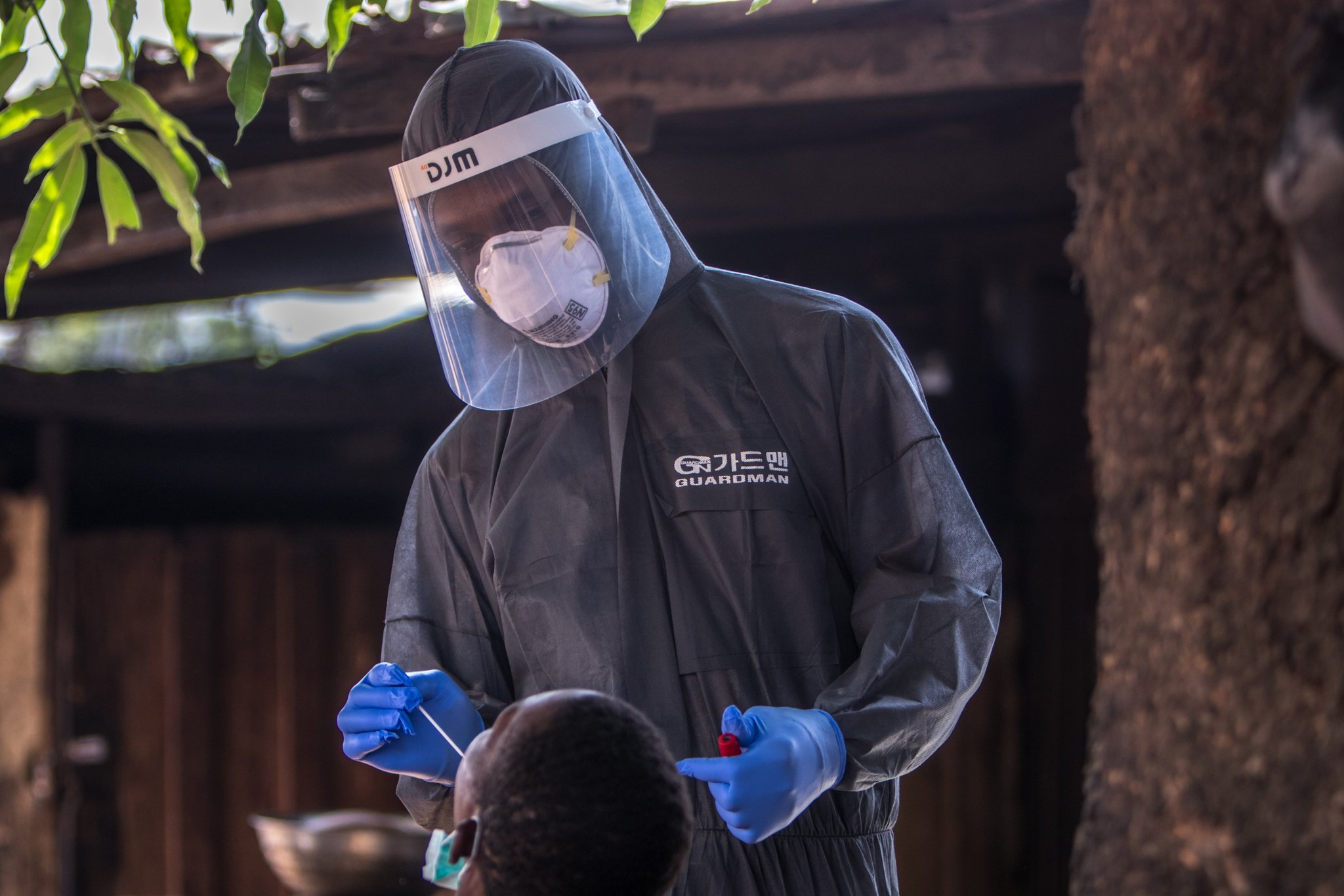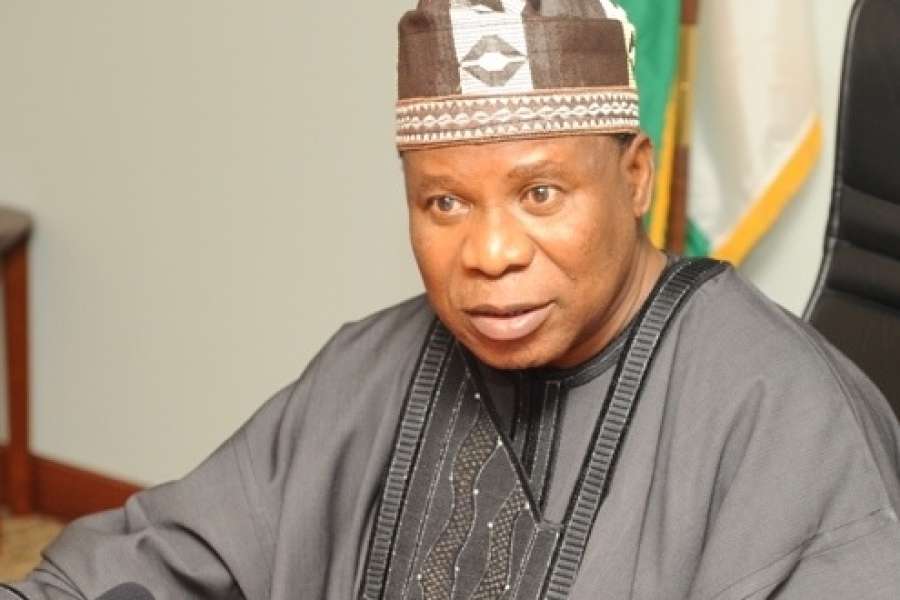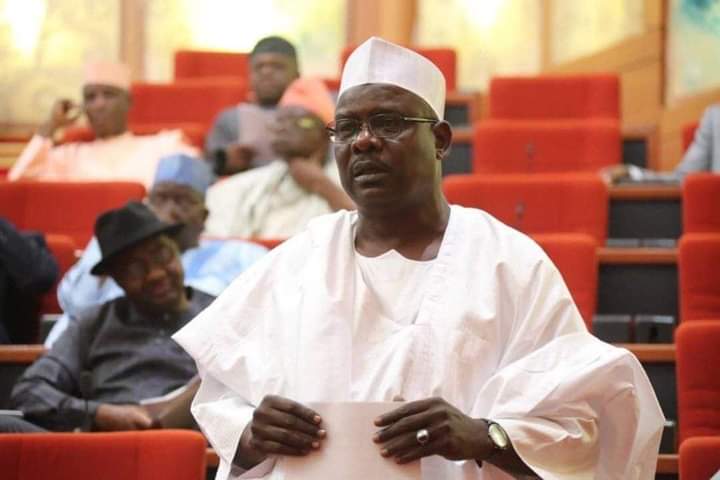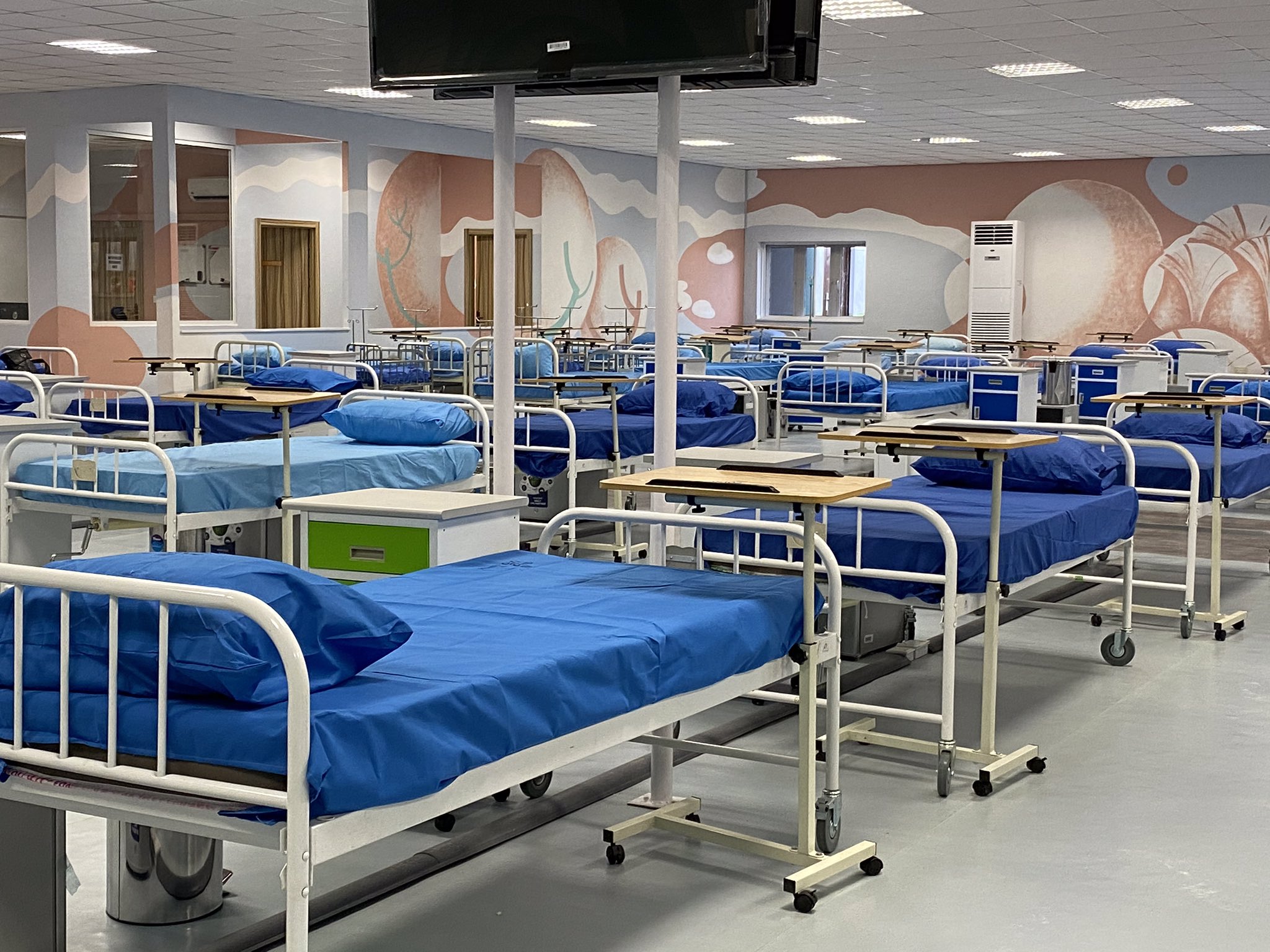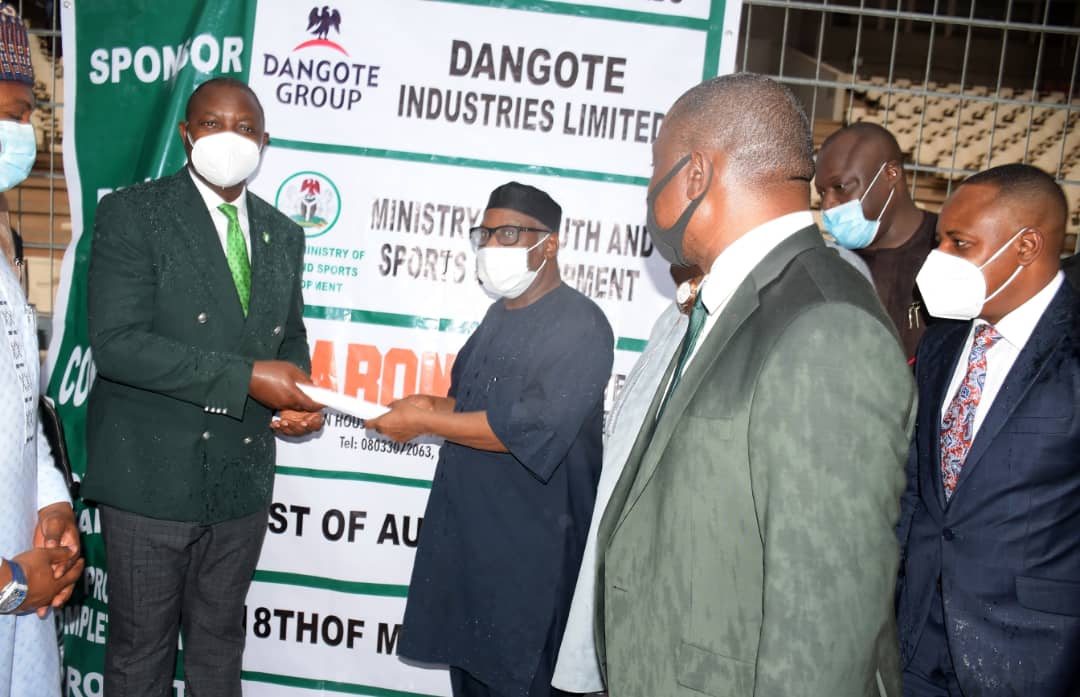BY ANAP THINK TANK
The World Health Organization (WHO) acknowledged COVID-19 as a Public Health Emergency of international concern on 30 January 2020 and characterized it as a pandemic on 11 March 2020.
Africa experienced its first case on 14 February 2020, with Nigeria reporting its first case the same month and entering the community transmission phase within a few weeks of its onset.
Today, Nigeria has recorded almost 53,000 COVID-19 cases, from about 384,000 tested samples and 1,007 deaths, a case fatality rate of about 2%. The country is still in the first phase of its response to the virus comprising an initial total lockdown and a partial (eased) lockdown thereafter. The intention during this phase was to flatten the rate at which COVID-19 infection spread, buy time for the government to improve the capacity of the health system and improve the readiness to deal with the anticipated full impact of the epidemic. But before these could be achieved, and as obtained in many developing economies, the pressing call to balance lives with livelihoods heralded an easing of the lockdown with the phased opening of economic activities, even in the face of the rising burden of COVID-19 infections and deaths.
Advertisement
Since Nigeria’s transition into eased lockdown, there has been a progressive rise in the number of COVID-19 cases and deaths that are typical of eased restrictions on movements and partial reopening of the economy.
Six months on, the Nigeria Center for Disease Control (NCDC) and the Presidential Task Force on COVID-19 (PTF) have reported an improved capacity for testing, from an initial capacity of about 1,000 tests per day across a network of 6 laboratories to a reported capacity of more than 15,000 tests per day across 30 laboratories and counting.
The government not only reported a ramped- up capacity for testing but an under-utilized potential as well whereby demand and sample collection for testing have remained low, compared with reported installed capacity. There are, however, competing opinions on this position of the government and other explanations that are worth considering for review.
Advertisement
Our Considerations
A strong response to COVID-19 requires a collaborative effort between the government at all levels, the private sector/corporate organizations and the citizens, working in partnership. While the government provides the guidelines, resources and direction for programme implementation, the private sector collaborates with the government to enhance government performance and delivery on set targets, leveraging on the culture of efficiency and accountability and support for civil society actors. The citizens, on the other hand, must take ownership of the response by trusting the government and complying with all instructions, guidelines and protocols for successful risk mitigation and disease control, within the ambit of the technology accessible to them and the costs that they can afford.
Current Situational Analysis
At the onset of the COVID-19 pandemic, the global community expressed concern over Africa’s capacity to deal with the outbreak and warned it to prepare for the worst-case scenario as the likely second epicentre of the pandemic. This narrative was not unconnected with the continent’s crowded informal urban settlements and the challenges these pose to the implementation of measures such as social distancing.
Advertisement
Access to safe water and sanitation facilities, generally considered the first line of defence against COVID-19 is also precarious, coupled with high levels of undernourishment and underlying health conditions such as tuberculosis, HIV & AIDS. The handling of previous epidemics such as the delayed containment of the 2014-2016 Ebola Viral Disease (EVD) regional pandemic, and the associated high EVD-related mortality were also recent in our memory.
Furthermore, the inherent weakness in and underfunding of our health systems cause the countries of sub-Saharan Africa to spend significantly less on health as a percentage of GDP compared to other regions globally. Access to quality health care in the region at the beginning of the current pandemic, therefore, looked very grim and doubtful.
However, the number of reported COVID-19 cases, hospitalizations and deaths from sub-Saharan Africa have not risen steeply as globally anticipated, although some quarters have attributed this to inadequate testing capacity in the region and poor documentation of deaths. Going by the COVID-19 related experiences from China, the United States of America, Italy, Spain and the United Kingdom, a lot more than an efficient health system delivering quality care is needed to control the pandemic.
While significant health system reforms were yet to be effectively applied by the time of the COVID-19 entrance into Nigeria, for example, other factors, though yet unproven, were thought to have influenced the resilience of the country, and indeed sub-Saharan Africa to the current pandemic. These will include our relatively “young” population with fewer co-morbidities, median age hovering about 19 years compared to Europe’s average of 40 years; a long-term national childhood BCG vaccination policy that tends to be correlated with fewer cases of COVID-19 and lesser fatality from the infection; a relatively warm climate and humidity that moderate the course of infection; and prior exposure to other infectious agents such as the Ebola virus, Lassa virus and other Coronaviruses that possibly provide cross-immunity.
Advertisement
As manageable as our COVID-19 experience seems to be compared with the countries of the global north, not a few observers have been worried about the likely course of events in Nigeria as we achieve new milestones in the number of COVID-19 cases and deaths. There is uncertainty about whether the country will ever be able to bend the epidemic curve and restore the society to a relative state of normalcy after moving from total to partial lockdown without a decline in the rate of infections.
By all indications, Nigeria might only have recently entered into a new phase of our COVID-19 experience as we move from partial lockdown to fully open. Capacity for testing has been ramped up in terms of numbers of laboratories, but there is diminished access to the tests real-time in many test centres in states across the country due to diminished funding, resulting in a shortage of test kits and restricted testing by officials.
Advertisement
Communication of test results to suspected carriers of the infection are also unduly delayed, averaging a week, and sometimes several weeks, during which time the client is often left with no clear instructions or advice on what to do and how to mitigate further spread of the infection. The NCDC and other national control mechanisms for COVID-19 are obviously overwhelmed. This scenario and the perception of an apparent avoidance of the worst form of the pandemic by the relatively youthful population results in a generalized apathy to testing and compliance with safety protocols and guidelines on the part of the citizenry, even among the elites and people showing symptoms.
Recent regulatory approval in the U.S. of self-administered saliva testing at much more cost-effective price points, with the very rapid turnaround time for results, will herald increased testing capacity globally. With this, testing rates and percent positivity will give a fuller perspective of COVID-19 in sub- Saharan Africa and Nigeria specifically.
Advertisement
The citizens seem to have accepted many myths and misconceptions concerning COVID-19, likening the infection to malaria which Nigerians have known and lived with for generations and not requiring any unusually strict or personal sacrifices. It is not uncommon for young Nigerians today to ask for evidence of other young Nigerians who have fallen victims of COVID-19, totally out of ignorance and failed public education on the one hand, and of mistrust of national official releases, strategies and advisories on the other hand.
Accordingly, the number of newly confirmed cases appears to be flattening, and in Lagos, for example, it would seem an average of 10% of tests are coming back positive. However, the Honourable Minister for Health recently warned against a false sense of security in this direction, asking Nigerians not to rejoice or lower their guard in terms of risk mitigation and adherence to infection prevention protocols and guidelines. The apparently low numbers of positive cases might just be due to low testing rates.
Advertisement
Large and crowded social gatherings are returning to our big cities with little or no respect for safety protocols such as the use of face masks, hand hygiene, cough etiquette and social distancing. The public transport sector is also largely unregulated in most communities around the country, and passengers are seated with no adherence to social distancing guidelines, hand hygiene or the use of facial coverings. The citizens feel abandoned and responsible for their survival both in health and disease, especially in the face of the abysmal performance of the government palliatives during the total (economic) lockdown phase of the national response.
Also worthy of mention is the inherent flaw in the handling of Nigerian returnees on evacuation flights on arrival at the international airports and later at the COVID-19 test centres where they are sent for screening. The social media platforms were recently awash with the reported poor organization at these sensitive places, leading to overcrowding, lack of social distancing, prolonged waiting time and anxiety concerning the risk of contagion on the part of the returnees, to the extent that returnees have started seeking ways to cut corners with the connivance of unscrupulous officials to purchase “a clean bill of health” rather than go through the “horror” attendant on screening and testing. This completely negates the purpose of testing the returnees in order to keep the country free of more importation of COVID-19.
Furthermore, we are also about to fully reopen with the planned resumption of international flights in a few weeks and the reopening of schools and colleges. From the experience of other countries that have lifted the ban on international travel and in-person learning in schools and colleges, we should expect an increase in COVID-19 cases and a higher propensity for community transmission of infection. This will be especially so if prevention guidelines and safety protocols are not strictly adhered to.
While a number of structural factors might be moderating Africa’s COVID-19 course and mortality burden, as alluded to above, there is still a real danger that the creeping complacency on the part of the government and the people may reverse or wipe out all the gains made during the last 6 months of total and partial lockdowns. A sizable section of the population is indisciplined and government which is fatigued in terms of funding and enforcement of infection prevention and control may fail to contain further outbreaks resulting in our worst fears of a new peak phase of the pandemic.
Our Recommendations
The Nigerian burden of disease will continue to rise for months to come, as the Reproduction number (R0) is still above 1. It is however unlikely that the Reproduction number will persistently remain above 1 for another year or two, anywhere in the world, Nigeria inclusive. There will either be a potent and widely available vaccine over the next one to two years, or there will be widespread community infections, but most of which will be mild to moderate. Either way, good herd immunity will be developed to moderate the transmission of infection in the long term. A third possible scenario is that the infection itself will burn out, based on its isolation from massive non-pharmacologic public health measures, provided individuals see the devastation that can accompany the infection (including the long-term sequelae reported to accompany mild infections) when people live carelessly.
While the world awaits a silver bullet solution in the long term, achieving the third scenario should be the target of government and citizens in the short and medium terms. We, therefore, need to rejig our control efforts and strategy in the following manner:
• We must now reopen the economy fully as there is a reasonable basis for believing that sub-Saharan Africa will be spared from the worst possible COVID-19 outcomes. However, absent of disciplined risk mitigation through adherence to personal hygiene, masking and social distancing when possible, we should plan for and be prepared for clusters and outbreaks. Proactive strategies for identification, containment and management of these clusters and outbreaks should be put in place. Our observation in sub-Saharan Africa is that most infected individuals will survive while the minority will have severe adverse consequences and require hospitalization. Our observation of the Nigerian COVID-19 experience is that 1 out of 10 infected persons above the age of 50 dies. While this age threshold is much lower than the 65-year-old vulnerability for severe disease or death related to COVID-19 described by the WHO, this observation may reflect the overall lower age of life expectancy in sub-Saharan Africa compared with the western world. We should remain cognizant and vigilant of this age vulnerability threshold in Nigeria as we reopen the economy.
• A second reason for reopening our economy in full is the reported devastating collapse of the GDP in Q2, 2020. A 6.1% year-on-year real GDP drop is worse than we were expecting and has conclusively exposed the fragility of our economy and its inability to cope with disruptive lockdowns and needless curfews.
• The country needs innovative behaviour change communication (BCC) strategies to overcome widespread myths and misconceptions among the citizens. Local channels such as town criers and other platforms used by people in the communities will prove invaluable here. Also, civil society, religious and opinion leaders, youth organizations, influencers and volunteer networks need to be better engaged by designing social and BCC interventions with consideration for the need to tailor interventions and age-appropriate messaging to different communities and groups. COVID-19 survivors can play a significant role in this direction as change agents.
• Going forward, engagement of community leaders in the design and implementation of COVID-19 control measures to think through and proffer context-specific responses to the call for social distancing in overcrowded cities and informal settlements must be given priority at this time. The Presidential Task Force constituted by ministers and heads of government agencies are largely seen by the average Nigerian as an elite club speaking to their peers to protect the health interests of the elites only. The country needs COVID-19 Czars at both national and local levels to whom the people will look for public health leadership and in whom they will trust and believe.
• Governments at all levels need to improve the current funding of the COVID-19 response in particular and the health system in general as a commitment to ensuring national health security. This pandemic has more than ever before revealed the weakness inherent in the health system and shown that health system strengthening is required for meaningful sustainable economic growth. The unwritten policy of restricted testing by states makes this recommendation all the more urgent.
• We need to strengthen the coordination of the national response units such as the port health services and immigration at international airports, the COVID-19 test centres, mobile teams and communication arms for better efficiency in order to build better trust among the citizens and secure their buy-in. The opinion of most Nigerians now is that the COVID-19 response is as chaotic and inefficient as many other aspects of our national life.
• We must improve regulation and coordination of the activities of relevant sectors of the economy such as public transportation, event planning, the hospitality industry and public worship, whose activities tend to impact the transmission of COVID-19 by ensuring that a minimum set of regulations for public safety is upheld and enforced. Building a pandemic-resilient system will require mainstreaming and strengthening the huge informal community-based health care system of Nigeria to deliver the care and enforce community participation that is needed during pandemics.
• Burial protocols released by the NCDC need to be enforced across the country. Currently, many states are ignoring these guidelines.
• All work that can be done from home should be. Preference for virtual meetings should be institutionalised. Larger gatherings should be held outdoors wherever possible. This should be the face of our new normal.
• All remaining curfews nationwide should be lifted immediately.
• Governments at all levels and the private proprietors must invest heavily in the planned reopening of schools across the country if we are to prevent an avoidable disaster. We accept that schools must now be reopened and so the debate must shift to ensuring minimum accompanying measures and installations to help achieve a safe reopening.
• Finally, all remaining local and international travel restrictions should be lifted immediately, with COVID-19 testing for international passengers before departure and upon arrival. Incoming foreigners should be required to have health travel insurance to reduce the risk of their exacerbating our healthcare funding challenges.
The Anap Foundation COVID-19 Think Tank was established on 22 March 2020, to help Nigeria respond to the Coronavirus Disease 2019 (“COVID-19”) pandemic. The Think Tank is comprised of 18 members drawn from across the 6 geopolitical zones and the diaspora (USA & Germany). Collectively, the Think Tank comprised of volunteers has decades of expertise in medicine, logistics, e-commerce, economics, finance, law, communications, religious knowledge, academia, mobilization, advocacy, sustainability, governance, grantmaking, accountancy, actuarial science, health management and international disaster management.
The members of the Think Tank are: Atedo Peterside CON (Chairman), Abubakar Siddique Mohammed (Vice-Chairman), Obinna Abajue, Konyin Ajayi (SAN), Innocent Chukwuma, Adwoa Edun, Leo Stan Ekeh, George Etomi, Buti Sam Kputu (Reverend), Matthew Hassan Kukah (Bishop), Dudu Manuga, Lucy Surhyel Newman, Ayisha Osori, Yinka Sanni, Lambert Shumbusho, Salamatu Hussaini Suleiman, Ibrahim D. Waziri, Yele Aluko (Dr – US-based International Medical Advisor) + Kayode Ijadunola (Professor and Adviser on Epidemiology)
Add a comment
